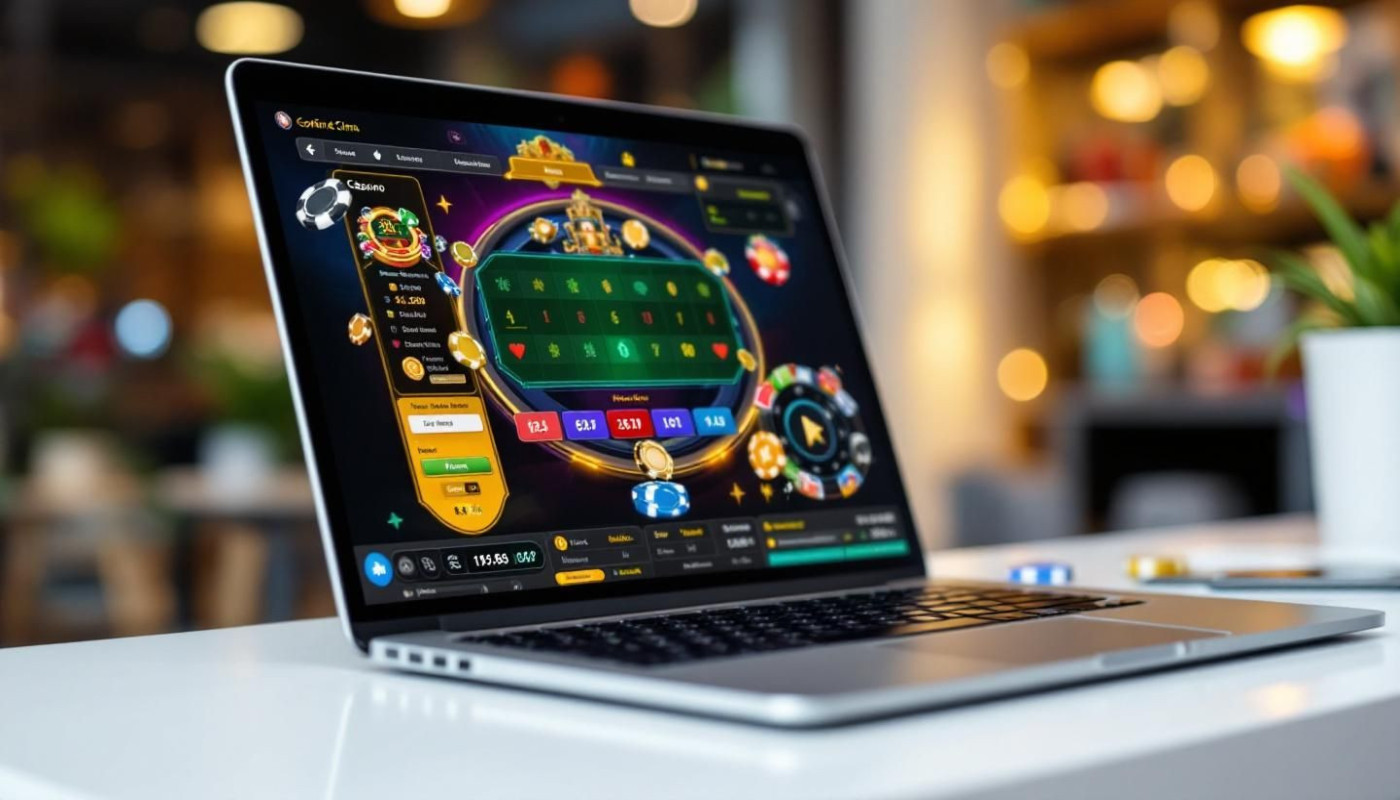Table of contents
Imagine walking into a casino, the sound of coins clinking, cards shuffling, and the buzz of eager anticipation in the air. While the allure of casino games often lies in their unpredictability and the thrill of chance, there's an underlying mathematical framework that governs the outcomes: probability theory. This sophisticated branch of mathematics is the key to understanding the odds of every game on the casino floor. As players seek to tilt the odds in their favor, a firm grasp of probability can be their best ally. This post delves into the application of probability theory in casino gaming, providing insights that could transform the way one approaches these games. Whether you're a casual player or a serious gambler, uncovering the role of probability in casino games will undoubtedly enhance your gaming experience. Read on to equip yourself with the knowledge to play smarter, not harder, and to understand the real odds of winning.
Understanding Probability in Gaming
At the heart of every shuffle, spin, or roll in a casino is the mathematical framework of probability theory, which guides the likelihood of various game outcomes. This system of calculation is instrumental in determining casino odds, shaping the very fabric of gaming strategies and player expectations. Probability, by definition, quantifies the chance that a specific event will occur within a set of possible outcomes. In the context of gaming, this translates to the odds provided by the house for each bet, which are meticulously calculated to ensure the casino retains an edge over time.
Casinos employ probability theory to establish these odds, shaping payouts that appear fair to players while guaranteeing long-term profitability. Understanding the distinction between theoretical probabilities—which are based on perfect mathematical models—and actual probabilities, which reflect real-world results, is key to navigating the complexities of casino games. Theoretical probabilities assume a perfect scenario with no external influences, whereas actual probabilities take into account the randomness and unpredictability inherent in gaming scenarios, including the concept of independent events, where the outcome of one event does not affect the outcome of another. Grasping these concepts allows players to engage with casino games with a more informed perspective on their chances of winning.
Calculating Odds in Popular Casino Games
In the realm of popular casino games, the odds and probabilities are inherent factors that can influence the outcome and the potential winnings of a player. Understanding how to calculate these odds, particularly the house edge, is vital for anyone looking to develop an effective game strategy. For instance, in slot machines, the odds are determined by the paytable and the number of possible outcomes, which are governed by a random number generator. A player calculates the expected return by considering each possible outcome, its probability, and its payout.
When it comes to roulette, the odds can vary depending on whether it’s an American or European wheel, due to the extra double zero on the American wheel. The probability of any single number winning is straightforward to calculate, and from there, one can deduce the house edge. In blackjack, the odds are more dynamic as they change with every card dealt. By using basic strategy and card counting, players can estimate their winning odds and adjust their bets accordingly. Lastly, in the game of craps, calculating odds requires understanding the multitude of available bets and their true odds versus the payout odds, leading to the determination of the house edge.
The common denominator for all these games is the concept of the expected value, which is the average outcome if a game was repeated many times. A sound grasp of these calculations not only sets the foundation for maximizing wins but also minimizes losses, making it an indispensable element for any serious gambler aiming to tip the scales in their favor.
The Role of Probability in Game Strategy
Mastering casino games often hinges on the strategic application of probability theory. A nuanced grasp of betting probability is pivotal for players looking to optimize their approach, particularly in skill-based games like poker and blackjack. For instance, understanding the odds of drawing a particular hand can significantly inform a player's decision-making process. This knowledge guides actions such as when to hit or stand in blackjack or how to gauge an opponent's hand in poker. Furthermore, bet sizing, an element that can make or break a game session, also relies heavily on probability estimations. A player must assess the risk of ruin, which refers to the likelihood of losing one's bankroll, to adjust their bets accordingly. By integrating these probabilistic considerations into one's game strategy, players can enhance their level of play and make more educated betting decisions, ultimately leading to a more effective and analytical approach to gambling.
Probability and the Gambler's Fallacy
One of the most pervasive misconceptions in gambling is known as the gambler's fallacy. This erroneous belief suggests that previous outcomes in a game of chance have a bearing on the likelihood of future results, especially if a certain outcome has occurred repeatedly. A prime example of this fallacy would be a player who witnesses a roulette ball landing on black several times in succession and consequently bets heavily on red, under the assumption that a red result must be 'due.' According to probability theory, each spin of the roulette wheel is an independent event, meaning that past spins have no influence on the outcome of future spins. The belief in the gambler's fallacy disregards the fact that the odds remain the same with every spin, regardless of previous results.
The psychological impact of the gambler's fallacy cannot be understated. Many gamblers fall prey to this fallacious reasoning, which can lead to poor decision-making and increased losses. The allure of detecting patterns where none exist is a cognitive bias that can affect player behavior, causing individuals to chase losses or bet more aggressively. Experts, such as psychologists specializing in gambling behaviors and professional statisticians, often refer to the 'law of large numbers' to help explain why the gambler's fallacy is a misconception. This law states that as the number of trials increases, the actual frequency of events will converge on the expected theoretical frequency. In essence, while short-term outcomes may seem to defy expected probabilities, the long-term results will align with the mathematical expectations. Understanding and accepting this fundamental principle of probability theory is vital for any gambler wishing to make informed and rational betting decisions.
Probability's Limitations in Predicting Outcomes
Understanding probability limitations is vital when engaging in casino games, where randomness and short-term variance play pivotal roles. Probability theory can indeed map out the likelihood of possible outcomes over a long period or across a large number of events. Yet, it does not guarantee predictions for individual occurrences, as each bet represents an independent event subject to chance. For instance, while flipping a coin has a 50% chance to land on heads, it is not assured that flipping it ten times will result in exactly five heads. The concept of standard deviation comes into play, describing the extent to which actual results can differ from the expected average in the short term. This unpredictability underscores the importance of responsible gambling, as even with a comprehensive understanding of probabilities, outcomes can never be predicted with absolute certainty. Experienced figures in the industry, such as a casino operations manager or a gambling consultant, would stress the significance of recognizing these limitations and advocating for moderation and self-awareness in casino gaming practices.
Similar

Exploring The Impact Of Multilingual Support In Online Casinos

Exploring The Thrill Of Carrot-Hunting Games With Progressive Difficulty Levels

Real Player Reviews: The Highs And Lows Of Chicken Road

The Role Of Audiovisuals In Enhancing Online Casino Experiences

Legal Challenges And Opportunities In The Themed Casino Game Market

